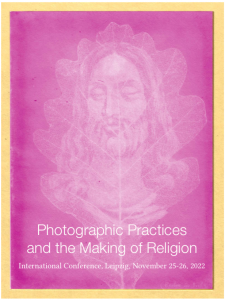
TDC Newspaper Staff 1880-90s © CC-BY-SA Flickr-User Marion Dross
Not too long ago, in November 2011, I started working on something that would later become the topic of my master´s thesis. In a course on early modern pamphlet production I had to deal with the “Neue Zeitung”, something that was – at this point – relatively new to me. After I took the first few steps in research I got the feeling, that this was a rather old fashioned subject. The output of articles, book chapters or monographs was relatively low, many of those younger publications where still quoting Karl Schottenlohers (in these days) important work.
When I dived more into the subject, these thoughts suddenly vanished. Too much was to discover and too many different standpoints had to be checked that I was too busy thinking about how relevant my topic would be in the context of current scholarship.
I was reminded of these days when a fellow academic mentioned to me in an email, that far too little research is being done in the field of communication history and the history of early newspaper. As presumably most researchers in humanities, I agree on the fact that too little attention is paid to one´s very own subject. However, I thought about my long-gone bias and thought it needs to be revised.
If we take scholarly endeavors of working groups, conferences, publications, blogging and digital initiatives as signs of academic interest in the history of newspapers and the news, then there is a lot to discover. I am not claiming completeness for this little oversight of actual scientific endeavors. However, I think, they can give a pretty good insight and show how diverse and lively the community is at this particular moment.
Research projects / working groups
An interesting approach to newspaper history is currently being developed by the News Networks In Early Modern Europe under the guidance of Prof. Joad Raymond. The working group aims to look at the history of newspapers in an international perspective. This stands out in contrast to the research tradition of researching newspaper rather as a national than an international phenomenon. An upcoming symposium is scheduled for the 26th – 28th July 2013 and the list of speakers and topics can be found here.
Another conference dealt with economic aspects of newspaper printing and publishing from the Early Modern Period up until the 19th century. The conference The Business of Newspapers 16th-19th Century held at Liverpool University, 6th and 7th of June 2013, dealt with the questions:
- Which newspapers were most profitable?
– To what extent did newspapers fund the growth of print culture?
– How important was the advent of the professional journalist?
– Were newspapers forums for conversation, or loci of knowledge?
– Did newspapers reflect or shape society’s mores?
– What effect did newspaper readership have on the cityscape? On sociability?
– What effect did media narratives have on popular perceptions of law, sex, government, war, or money?
– Who subscribed to newspapers? Who read them?
– How effective were newspaper advertisements in generating revenue?
The proceedings of this conference are not yet published but the questions raised by the organizing committee touched several points in newspaper history that are only poorly researched and bear the potential to enlighten main aspects in newspaper history.
The working group The local press as poetry publisher 1800-1900, consisting of Andrew Hobbs and Claire Januszewski from University of Central Lancashire works with a more literature-focused view. In a number of posts they discuss their hypotheses that the national network of local newspapers was the largest publisher of nineteenth-century poetry, and the medium through which most encounters with poetry occurred.
Digitization
One aspect, featured already in the last post, is digitalization. Working with a larger amount of source material is easier, if you can remotely access it and browse it whenever you have the time. Large quantities are being digitized and can be accessed on the project website. Here, a group of 18 European library partners joined together with the aim of providing digital access to more than 18 million newspaper pages. The newspapers will be ocr-processed to give the user the possibility of digging deep into the text themselves. The focus if this project are early 20th century newspapers from the period of WW I.
Besides this rather large project, a number of smaller digitization projects are currently carried out. The university library of Heidelberg provides the community with a digital copy of the two oldest newspapers in the world, the Relation: Aller Fuernemmen und gedenckwuerdigen Historien.
The Gottfried Wilhelm Leibnitz library does something similar when it makes all 1609 issues of the Avisa Relation oder Zeitung printed in Wolfenbüttel available.
Once the newspapers are digitized, the matter of finding the right resources arises. Here, elephind.com, a search engine specialized in finding historic newspaper comes into play. However, it is more a help for the English speaking community, since its database consists mainly of Australian and US newspaper holdings in libraries in these two countries.
Austria is one of the countries besides Great Britain to have a relatively well documented newspaper history online. Selected newspaper can be accessed via the ANNO Project. A definite plus is the functionality of the website: newspapers can be accessed via a search term and also by browsing through a calendar.
Quelle: http://newsphist.hypotheses.org/39



